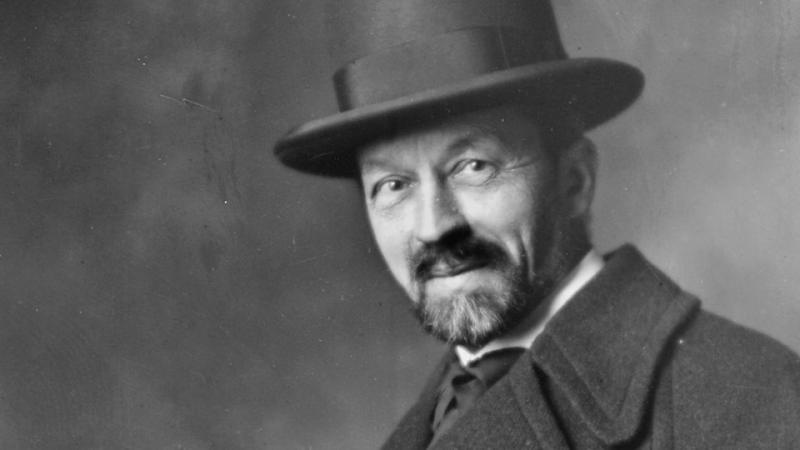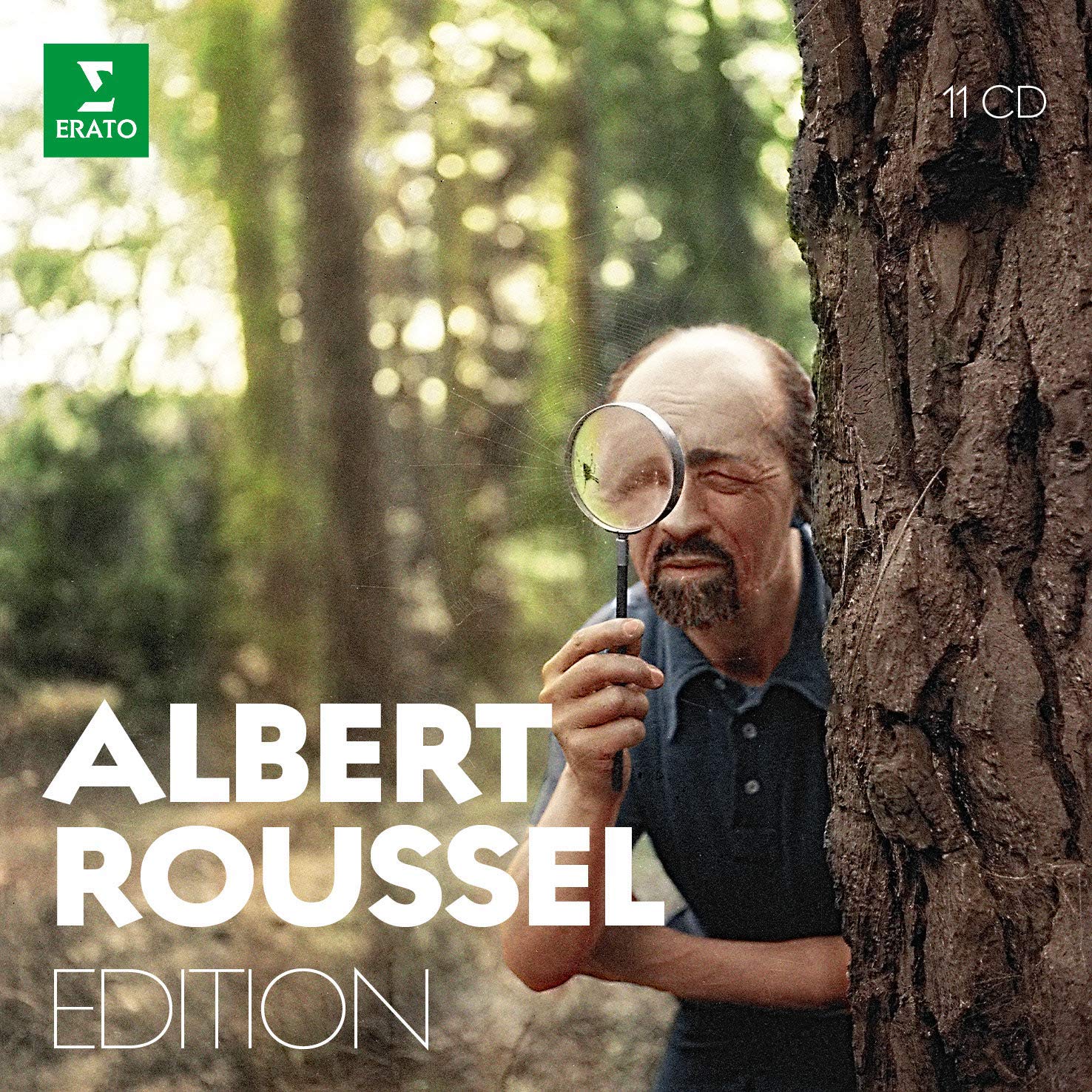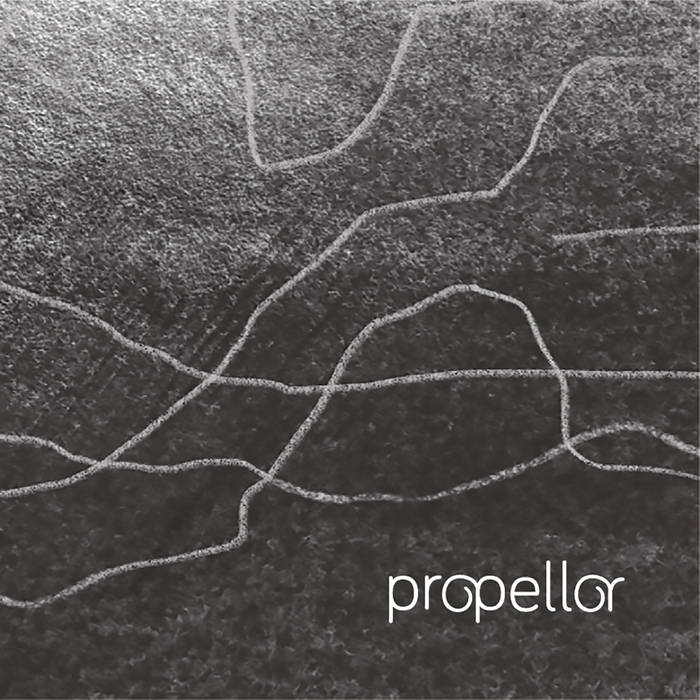Classical CDs Weekly: Albert Roussel, Roy Budd, Propellor | reviews, news & interviews
Classical CDs Weekly: Albert Roussel, Roy Budd, Propellor
Classical CDs Weekly: Albert Roussel, Roy Budd, Propellor
A great French composer gets his due, an iconic film score remastered and an aquatic journey from ocean to sky

 Albert Roussel Edition (Erato)
Albert Roussel Edition (Erato)
Be grateful that Albert Roussel became a composer at all. Born in 1869 and orphaned at a young age, he was a talented pianist who joined the French navy as a teenager. Music was an enjoyable distraction during his naval service, Roussel accompanying Sunday services and playing chamber music with fellow officers. He retired in 1894 and promptly moved to Paris to study music, initially studying harmony and counterpoint privately before enrolling at the Schola Cantorum under Vincent d’Indy. Prodigiously talented, Roussel was quickly roped into teaching counterpoint there, his earliest pupils including Varèse and Satie. Martinů was a student in the 1920s. Meanwhile, Roussel’s compositional career blossomed. Erato’s capacious box set is a must-have for anyone interested in early 20th century music, and an idea way to become acquainted with a supremely likeable figure. Where to start? Probably with the final disc on the box, which includes a 1930 recording of the suite from Roussel’s lovely ballet Le Festin de l’araignée conducted by the composer. Hearing a vintage French orchestra is fascinating in itself, and Roussel brings out the score’s wit and warmth. We also get a few seconds of him talking, in clear, crisp, French, and accompanying five chansons in 1929 with soprano Claire Croiza. It's spine-tingling.
Then turn to CDs 6 and 7, where you'll find Charles Munch’s definitive, pungent performances of Roussel's 3rd and 4th symphonies. The four symphonies neatly plot the composer's stylistic development: No 1 a rhapsodic slice of nature worship replete with bird calls, No 2 harder-edged and darker. They're already fascinating, but No 3, commissioned by Koussevitsky, is the place to start, Roussel's lean neoclassicism utterly compelling; this is such a joyous, memorable piece. I've been exploring this set for several months and the music’s positivity is one of its consistent pleasures: you can sense that Roussel took real delight in being a composer. Try the opening movement of his Suite in F, one of the most irrepressibly upbeat things you’ll hear.
We get the ballets Bacchus et Ariane, Aeneas and the complete Festin de l’araignée in superb performances from Roussel’s pupil Jean Martinon. Orchestral rarities include the Piano Concerto and the late Concertino for Cello – both compelling, and Padmãvati, Roussel's highly-perfumed opéra-ballet. Plus generous swathes of vocal and chamber music. Martinon, Munch, Michel Plasson and Charles Dutoit are among the conductors involved. Remasterings are clear and clean. An unmissable bargain, compiled with rare intelligence and love. Even the cover photo is superb, a colourised Roussel in the field and gazing, entranced, at a spider.
 Roy Budd: Get Carter (Cherry Red)
Roy Budd: Get Carter (Cherry Red)
Roy Budd’s music to Mike Hodges’ Tyneside noir Get Carter is one of the great film scores. Though there's not actually an awful lot of it, and what there is mostly performed by just three musicians. Producer Michael Klinger couldn't afford an orchestral score, settling instead for Budd on harpsichord, piano and electric piano, Chris Karan on percussion and bassist Jeff Clyne. Get Carter’s menacing, exhilarating main theme is still an extraordinary thing, Clyne’s bass ostinato, Karan’s tabla accompanying Budd’s earworm of a harpsichord riff. Just two chords have rarely sounded so cool and edgy. Hodges uses variants of the motif very sparingly in the film, and the rest of the soundtrack is comprised of the generic, diegetic numbers which we hear in selected scenes. Several are indecently catchy, as if Budd was incapable of writing an unmemorable tune. "Love is a Four Letter Word", sung by Lesley Dawson, is a corker, as is the instrumental "Girl in the Car". I'm keep returning to "Goodbye Carter", a rerun of the main theme shorn of the train noises which accompany its first outing.
That this is a three-disc set might seem like overkill, but it's worth the investment. We get a selection of alternative takes and mixes, plus four unnecessary remixes. More interesting is a CD of extracts from Budd's later work, much of it rivalling the likes of John Barry and Lalo Schifrin in terms of catchiness. No Doubt and Jazz it up, both from French Connection knock-off The Marseille Contract are great fun; Budd’s scores usually more memorable than the films they served. Documentation is superb, the three discs packaged in a hardback book containing essays on source novel, film and score, much of it by Budd's friend and collaborator Paul Fishman. Remasterings are excellent.
 Propellor: Loom (Propellor Ensemble)
Propellor: Loom (Propellor Ensemble)
Sumptuous art design and minimal documentation mean that you have to approach this beguiling album with open ears. The one hint we get is a definition of the word loom as “the slow and silent movement of water in a deep pool” in Cumbrian dialect, subsequent google searches revealing that Loom is an ambitious work, its 50 minutes charting a water course’s backward journey from sea to sky. Live performances by the twelve-piece Propellor earlier this year were immersive events with video projection, live electronics and field recordings. Much of the work was developed at Snape Maltings, and the snatches of speech heard throughout reference the local area. So we begin in what's presumably a becalmed, chilly North Sea. Floods, and the idiocy of planners who build homes on flood plains, are a recurring theme, along with the centrality of water in people's lives. Loom unfolds as a seamless single movement, the transitions between sections imperceptible. Folksy stomping and brass duets give way to patches of ambient electronica, and there's a magical coda. We're left with the sound of soft rainfall.
Without the visuals we're missing a key element, but this beautifully produced performance, taped in Snape Maltings, makes for agreeable listening, Propellor’s assorted instrumentalists audibly having fun. Five little Loom Miniatures, cut from the same cloth, are offered as a bonus. Accordion and clarinet jostle for attention in River, and there's a sense of quiet desolation in Floodplain.
Explore topics
Share this article
The future of Arts Journalism
You can stop theartsdesk.com closing!
We urgently need financing to survive. Our fundraising drive has thus far raised £49,000 but we need to reach £100,000 or we will be forced to close. Please contribute here: https://gofund.me/c3f6033d
And if you can forward this information to anyone who might assist, we’d be grateful.

Subscribe to theartsdesk.com
Thank you for continuing to read our work on theartsdesk.com. For unlimited access to every article in its entirety, including our archive of more than 15,000 pieces, we're asking for £5 per month or £40 per year. We feel it's a very good deal, and hope you do too.
To take a subscription now simply click here.
And if you're looking for that extra gift for a friend or family member, why not treat them to a theartsdesk.com gift subscription?
more Classical music
 Kohout, Spence, Braun, Manchester Camerata, Huth, RNCM, Manchester review - joy, insight, imagination and unanimity
Celebration of the past with stars of the future at the Royal Northern College
Kohout, Spence, Braun, Manchester Camerata, Huth, RNCM, Manchester review - joy, insight, imagination and unanimity
Celebration of the past with stars of the future at the Royal Northern College
 Jansen, LSO, Pappano, Barbican review - profound and bracing emotional workouts
Great soloist, conductor and orchestra take Britten and Shostakovich to the edge
Jansen, LSO, Pappano, Barbican review - profound and bracing emotional workouts
Great soloist, conductor and orchestra take Britten and Shostakovich to the edge
 Jakub Hrůša and Friends in Concert, Royal Opera review - fleshcreep in two uneven halves
Bartók kept short, and a sprawling Dvořák choral ballad done as well as it could be
Jakub Hrůša and Friends in Concert, Royal Opera review - fleshcreep in two uneven halves
Bartók kept short, and a sprawling Dvořák choral ballad done as well as it could be
 Hadelich, BBC Philharmonic, Storgårds, Bridgewater Hall, Manchester review - youth, fate and pain
Prokofiev in the hands of a fine violinist has surely never sounded better
Hadelich, BBC Philharmonic, Storgårds, Bridgewater Hall, Manchester review - youth, fate and pain
Prokofiev in the hands of a fine violinist has surely never sounded better
 Monteverdi Choir, ORR, Heras-Casado, St Martin-in-the-Fields review - flames of joy and sorrow
First-rate soloists, choir and orchestra unite in a blazing Mozart Requiem
Monteverdi Choir, ORR, Heras-Casado, St Martin-in-the-Fields review - flames of joy and sorrow
First-rate soloists, choir and orchestra unite in a blazing Mozart Requiem
 Cho, LSO, Pappano, Barbican review - finely-focused stormy weather
Chameleonic Seong-Jin Cho is a match for the fine-tuning of the LSO’s Chief Conductor
Cho, LSO, Pappano, Barbican review - finely-focused stormy weather
Chameleonic Seong-Jin Cho is a match for the fine-tuning of the LSO’s Chief Conductor
 Classical CDs: Shrouds, silhouettes and superstition
Cello concertos, choral collections and a stunning tribute to a contemporary giant
Classical CDs: Shrouds, silhouettes and superstition
Cello concertos, choral collections and a stunning tribute to a contemporary giant
 Appl, Levickis, Wigmore Hall review - fun to the fore in cabaret and show songs
A relaxed evening of light-hearted fare, with the accordion offering unusual colours
Appl, Levickis, Wigmore Hall review - fun to the fore in cabaret and show songs
A relaxed evening of light-hearted fare, with the accordion offering unusual colours
 Lammermuir Festival 2025, Part 2 review - from the soaringly sublime to the zoologically ridiculous
Bigger than ever, and the quality remains astonishingly high
Lammermuir Festival 2025, Part 2 review - from the soaringly sublime to the zoologically ridiculous
Bigger than ever, and the quality remains astonishingly high
 BBC Proms: Ehnes, Sinfonia of London, Wilson review - aspects of love
Sensuous Ravel, and bittersweet Bernstein, on an amorous evening
BBC Proms: Ehnes, Sinfonia of London, Wilson review - aspects of love
Sensuous Ravel, and bittersweet Bernstein, on an amorous evening
 Presteigne Festival 2025 review - new music is centre stage in the Welsh Marches
Music by 30 living composers, with Eleanor Alberga topping the bill
Presteigne Festival 2025 review - new music is centre stage in the Welsh Marches
Music by 30 living composers, with Eleanor Alberga topping the bill
 Lammermuir Festival 2025 review - music with soul from the heart of East Lothian
Baroque splendour, and chamber-ensemble drama, amid history-haunted lands
Lammermuir Festival 2025 review - music with soul from the heart of East Lothian
Baroque splendour, and chamber-ensemble drama, amid history-haunted lands

Add comment